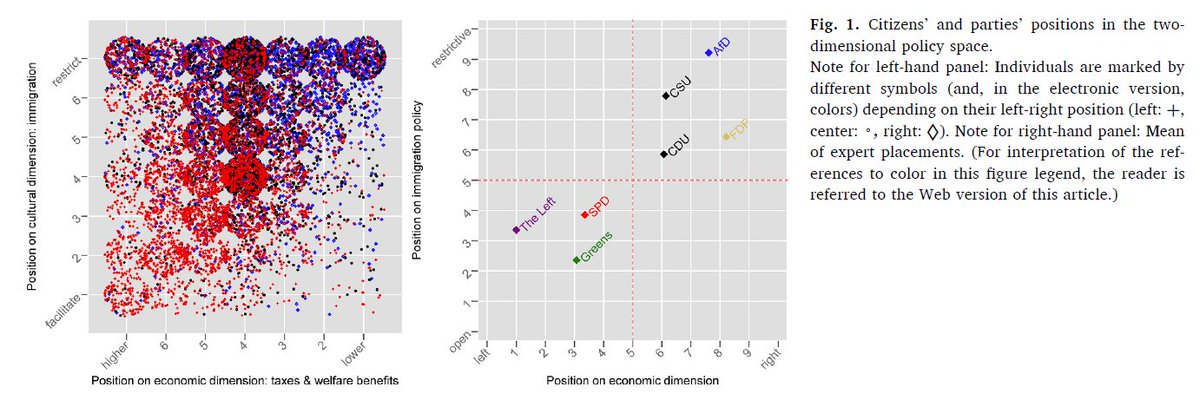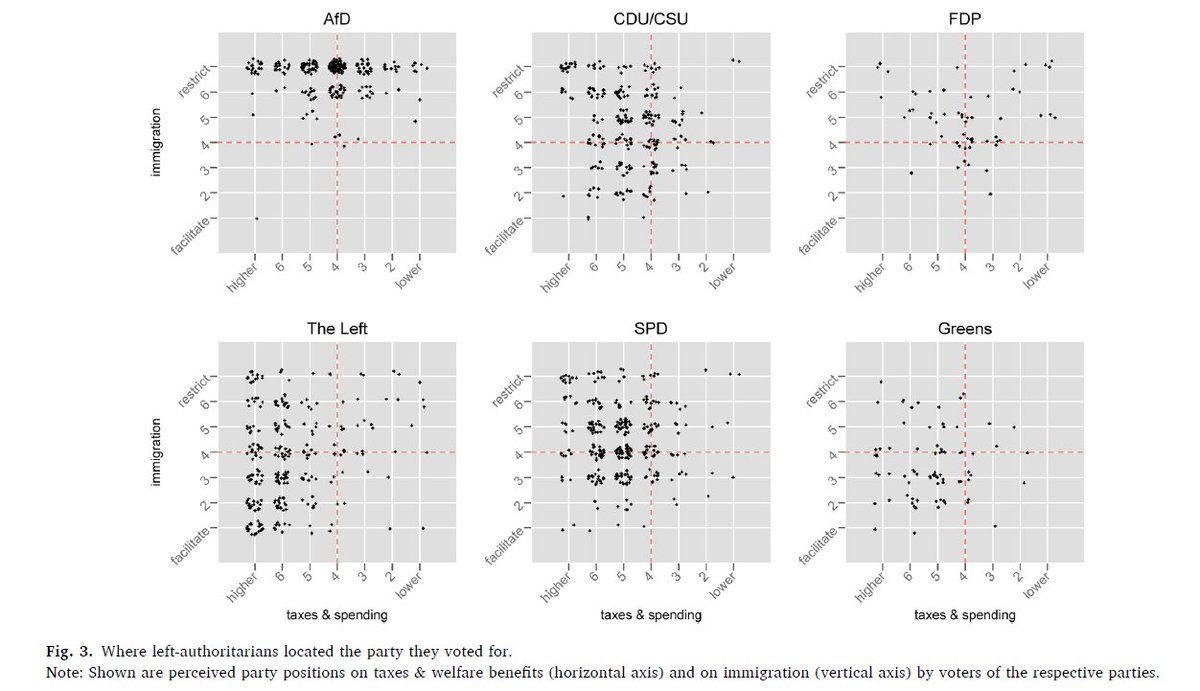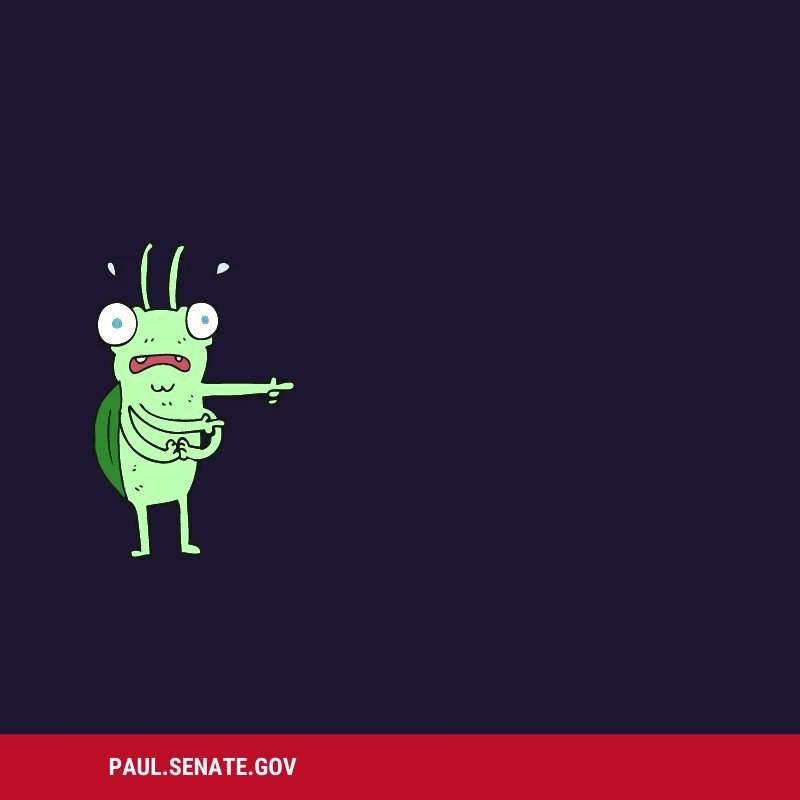Mollyycolllinss Categories Economy
7 days
30 days
All time
Recent
Popular
It's always been detached, and it's always made the real economy worse.
[THREAD] 1/10
What is profit? It's excess labor.
You and your coworkers make a chair. Your boss sells that chair for more than he pays for the production of that chair and pockets the extra money.
So he pays you less than what he should and calls the unpaid labor he took "profit." 2/10
Well, the stock market adds a layer to that.
So now, when you work, it isn't just your boss that is siphoning off your excess labor but it is also all the shareholders.
There's a whole class of people who now rely on you to produce those chairs without fair compensation. 3/10
And in order to support these people, you and your coworkers need to up your productivity. More hours etc.
But Wall Street demands endless growth in order to keep the game going, so that's not enough.
So as your productivity increases, your relative wages suffer. 4/10
Not because the goods don't have value or because your labor is worth less. Often it's actually worth more because you've had to become incredibly productive in order to keep your job.
No, your wages suffer because there are so many people who need to profit from your work. 5/10
[THREAD] 1/10
I know people think this is fun but -- why do we have a stock market? So productive firms can raise capital to do useful things. Detaching stock price from fundamental value (Gamestop is now worth almost as much as Best Buy) makes the markets serve the real economy worse.
— Josh Barro (@jbarro) January 27, 2021
What is profit? It's excess labor.
You and your coworkers make a chair. Your boss sells that chair for more than he pays for the production of that chair and pockets the extra money.
So he pays you less than what he should and calls the unpaid labor he took "profit." 2/10
Well, the stock market adds a layer to that.
So now, when you work, it isn't just your boss that is siphoning off your excess labor but it is also all the shareholders.
There's a whole class of people who now rely on you to produce those chairs without fair compensation. 3/10
And in order to support these people, you and your coworkers need to up your productivity. More hours etc.
But Wall Street demands endless growth in order to keep the game going, so that's not enough.
So as your productivity increases, your relative wages suffer. 4/10
Not because the goods don't have value or because your labor is worth less. Often it's actually worth more because you've had to become incredibly productive in order to keep your job.
No, your wages suffer because there are so many people who need to profit from your work. 5/10
In this paper, we study vote choices of voters who are left-wing on economic issues and authoritarian/nationalist on cultural issues, especially immigration. For these voters, there is no often party combining positions in this way.
In the data from the Campaign Panel of the German Election Study 2017, many voters prefer higher social benefits and taxes and want to restrict immigration. @ches_data show that no party bundles issue positions in this way.

In the article, we show that many such “left-authoritarians” perceive the party they voted for to also hold a left-authoritarian position. Interestingly, this includes many AfD voters who report a perceived left-wing economic position of the party.

Our statistical models study the interplay between this (mis-)perceived congruence and issue importance, using an open-ended question on the most important political problem in Germany.
We find that (mis-)perceived congruence and issue importance interactively shape the left-authoritarian vote. Simply, perceived congruence matters more on an important issue—and issue salience matters most if voters accurately perceive incongruent party supply.
Vol 70 Apr | '#Vote choices of left-#authoritarians: Misperceived congruence and issue #salience' by @NilsSteiner and Sven Hillen is now available @ches_data @german_gles #Germany https://t.co/pmCoP5t7CL pic.twitter.com/Vl8rCahcZL
— Electoral Studies (@ElectoralStdies) January 30, 2021
In the data from the Campaign Panel of the German Election Study 2017, many voters prefer higher social benefits and taxes and want to restrict immigration. @ches_data show that no party bundles issue positions in this way.

In the article, we show that many such “left-authoritarians” perceive the party they voted for to also hold a left-authoritarian position. Interestingly, this includes many AfD voters who report a perceived left-wing economic position of the party.

Our statistical models study the interplay between this (mis-)perceived congruence and issue importance, using an open-ended question on the most important political problem in Germany.
We find that (mis-)perceived congruence and issue importance interactively shape the left-authoritarian vote. Simply, perceived congruence matters more on an important issue—and issue salience matters most if voters accurately perceive incongruent party supply.
1/9. There are many problems with this rule. Pruitt/Wheeler threw out EPA's own established procedures to short-circuit the science review: changes to the review process since 2017 undermined its quality, credibility, and integrity.
2/9. Pruitt/Wheeler kicked all 7 members off the Clean Air Scientific Advisory Committee, and replaced them under a policy found to be arbitrary and capricious by the U.S. district court of SDNY. The repopulated CASAC has the appearance of lack of impartiality.
3/9. Wheeler refused to form a CASAC Ozone Review Panel 3 months after EPA issued a call for nominations for such a panel, thereby depriving CASAC of the breadth, depth, and diversity of expertise, experience and perspectives needed for ozone NAAQS Review.
4/9. The Ozone review process was truncated and accelerated, leading to inadequate scientific review, and inappropriate commingling of science and policy reviews. Fewer opportunities for public comment created a less transparent NAAQS scientific review process
5/9. As professional malpractice, the stripped down and reconstituted CASAC offered advice outside of its expertise, particularly with regard to epidemiology (there were zero epidemiologists on CASAC). The CASAC chair imposed a burden of proof contrary to that of the CAA.
#EPA's status quo rule to leave its current ground-level ozone standard in place cleared #OIRA review yesterday after just two weeks. An agency announcement is coming this afternoon. #AirPollution pic.twitter.com/lIGAQBBgkL
— Sean Reilly (@SeanatGreenwire) December 23, 2020
2/9. Pruitt/Wheeler kicked all 7 members off the Clean Air Scientific Advisory Committee, and replaced them under a policy found to be arbitrary and capricious by the U.S. district court of SDNY. The repopulated CASAC has the appearance of lack of impartiality.
3/9. Wheeler refused to form a CASAC Ozone Review Panel 3 months after EPA issued a call for nominations for such a panel, thereby depriving CASAC of the breadth, depth, and diversity of expertise, experience and perspectives needed for ozone NAAQS Review.
4/9. The Ozone review process was truncated and accelerated, leading to inadequate scientific review, and inappropriate commingling of science and policy reviews. Fewer opportunities for public comment created a less transparent NAAQS scientific review process
5/9. As professional malpractice, the stripped down and reconstituted CASAC offered advice outside of its expertise, particularly with regard to epidemiology (there were zero epidemiologists on CASAC). The CASAC chair imposed a burden of proof contrary to that of the CAA.
Yesterday, I published my #Festivus waste report, which highlighted $54 billion in truly outlandish waste in government.
Remember this the next time they tell you there’s “nothing to cut.”
I’ll give you some examples of it here:
Researchers used federal funds from grants worth $1,327,781.72 to see if you’ll eat ground-up bugs. Read more here: https://t.co/BU1CjiZdgS

The National Institutes of Health is spending $3,452,234.00 to test if social media messages will get moms to stop their adolescent daughters from using indoor tanning salons. Read more here: https://t.co/BU1CjiZdgS

Remember this the next time they tell you there’s “nothing to cut.”
I’ll give you some examples of it here:
Researchers used federal funds from grants worth $1,327,781.72 to see if you’ll eat ground-up bugs. Read more here: https://t.co/BU1CjiZdgS

The National Institutes of Health is spending $3,452,234.00 to test if social media messages will get moms to stop their adolescent daughters from using indoor tanning salons. Read more here: https://t.co/BU1CjiZdgS







